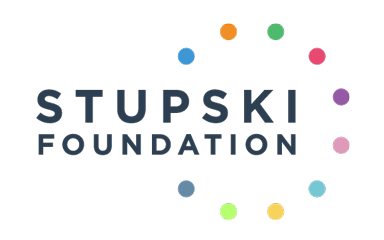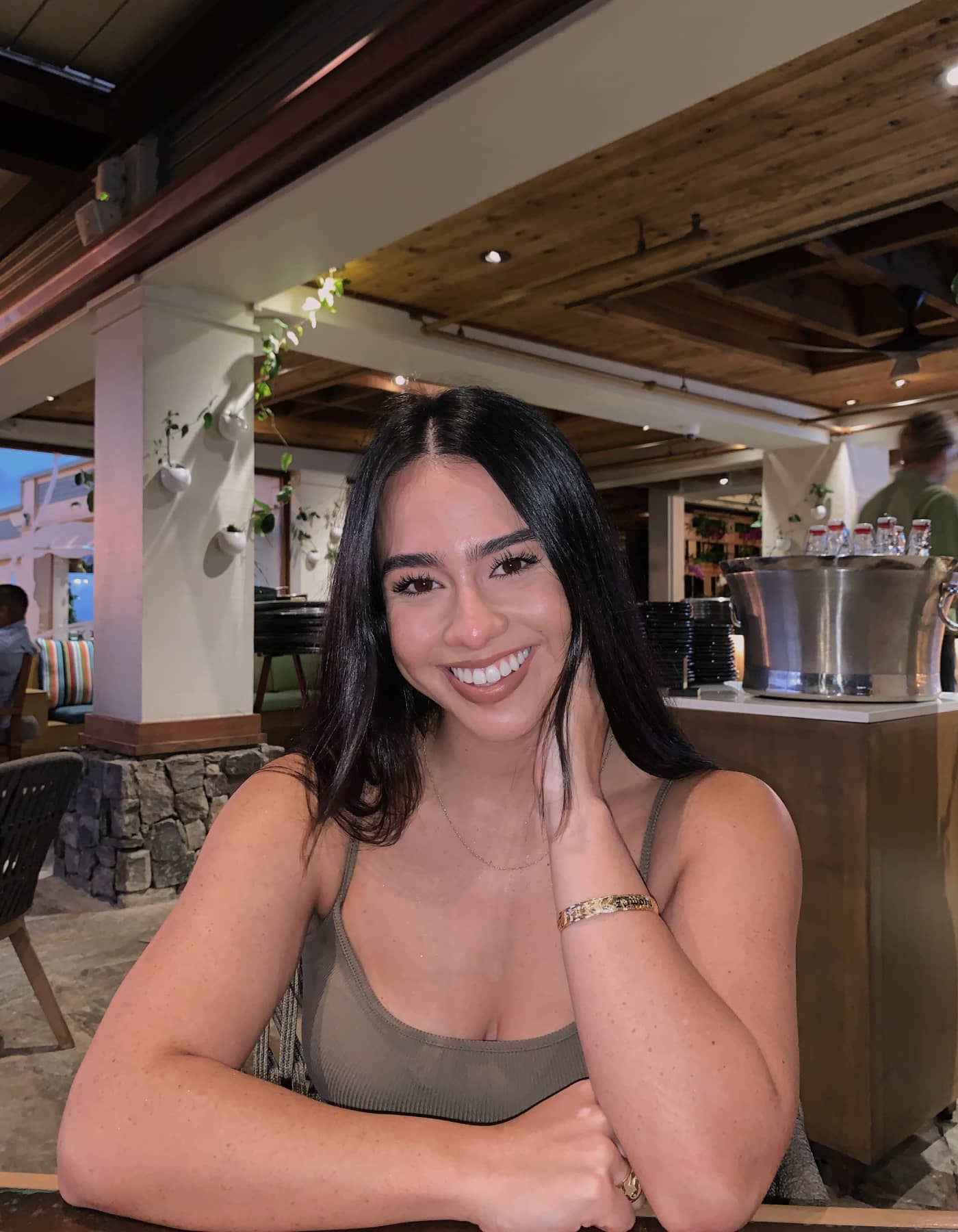
Introduction
Tell Me About Yourself.
Hi, my name is Hannah. I am from the island of Maui, and I am actually in my second year of college. This is my first year completely online though. So for my first year of college, I attended Louisiana State University (LSU), Shreveport Campus and there I studied pre-physical therapy. Upon my completion of the first year I decided that I needed a change. And so I transferred to California Baptist university’s online program, and I am now studying kinesiology. Both programs I chose because I hope to one day become a physical therapist.
“One of my career goals is to come back to Hawaiʻi and serve our community in an area that I believe has a lack of representation and resources.”
That is something that I’m very passionate about. Some of my hobbies include traveling. I really enjoy traveling. That’s also another reason why I decided to go online this year, was to take up an opportunity I had to travel. And I also enjoy working out and specifically Olympic weightlifting. So that’s why I went to Louisiana in the first place, was to continue my journey as an Olympic weightlifter. So I competed collegiately there and something that I’m still very passionate about. I enjoy coaching as well here on Maui.
If we’re talking about college experiences and such, I also think being the first year or the first year of college, as I mentioned, I was in Louisiana. And compared to how you shared, you were more naive to the experience of being on the continent away from home. And that is something that I was very comfortable with and I was excited about. I had been away from home on many occasions and had the opportunity to travel growing up. So I knew that was something that I was excited to do and to be in a new place. But I think that also due to COVID, it really took away of your first year experience.
“It (LSU) taught me a lot about myself. Being by yourself in a place that’s remote away from home, away from people that you know is very difficult, and it takes a lot out of a person to be able to go through that.”
I think that it is very important to find people that will support you in that new area. And it is difficult to find those people, but I was able to find a good community there that supported me. Even though I knew it was going to be difficult, I went through a lot and at the end of the year, I just had to reevaluate my goals and the place that I was in.
“I knew that I wasn’t going to completely grow there. It wasn’t where I saw myself really developing into the person that I wanted to become.”
I had to make the decision to leave, and it was very difficult, but I think that you really have to prioritize your goals and your mental health and what position you want to be in.
What Does Being Native Hawaiian Meant to You?
As a Native Hawaiian, I attended Kamehameha Schools from preschool all the way to my senior year and high school. So I was really submerged into that 21st century Native Hawaiian thinking mentality. So from a young age, I’ve been blessed exponentially with opportunities to set me up for the future, because that is how Kamehameha Schools really instills in their students, is to set them up to be 21st century leaders in their community and as well as worldwide.
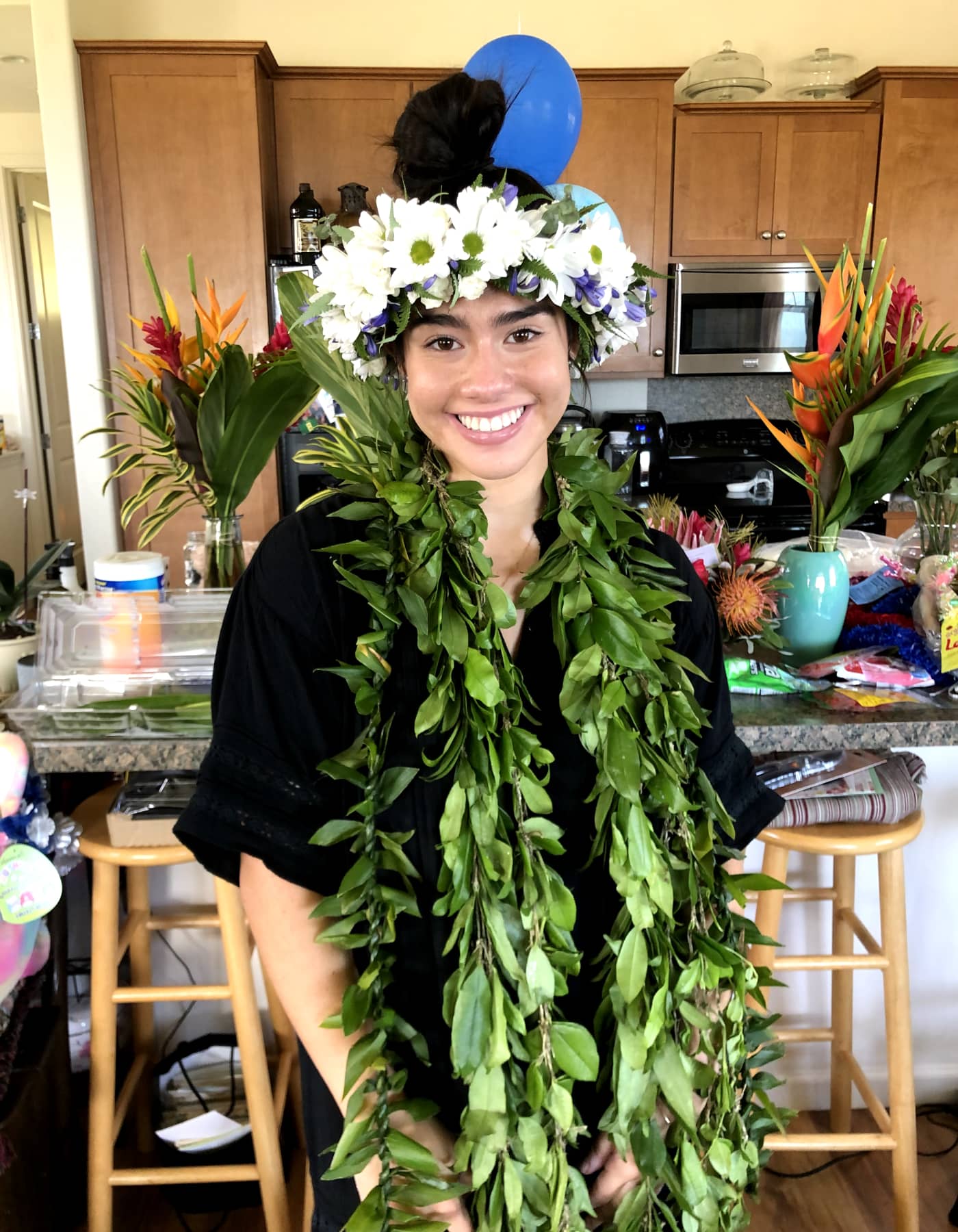
“They also instill in you the Native Hawaiian values, that have taken me so far in my journey. Aloha, Mālama , Laulima, all of those. There’s so many values that are important in our Hawaiian community that set us apart from any other culture in the world.”
We are so different. And I think that’s what a lot of Native Hawaiians can use that to their advantage. Because although we think it’s just that it’s how everyone thinks, right? Everyone should be showing Aloha and showing Mālama and being humble and all of those qualities. But people don’t show those qualities in a lot of places. So using that to your benefit, I think, and tapping into your roots and how you are brought up is something that sets us apart, and can set you apart in an application, in a job in the community and in making friends. That is something that will set you apart.
“Being from Hawaiʻi and Native Hawaiian has really grounded me in who I am and has allowed me to be grateful for all the experiences that I’ve had, good and bad, and use those to benefit myself, my community and those around me.”
And think that is something that Hawaiʻi really amplifies in a lot of people. I’m very grateful for the upbringing that I had, and the kind of certainty in knowing who I am and knowing where I come from. That I’ll always have myself and my community and my land and the ‘āina to come back to and reflect upon and draw from. Being away from home and going to school and being around other people really highlights or makes you appreciate all that you have. All that is here in Hawaiʻi Even though sometimes you get complacent with being in Hawaiʻi Like, oh, it’s so boring here. And like, there’s not much to do. Like, you can go to the beach, you can go and eat. But that energy here is just unmatched. And being away from home and being around other people that don’t share that same mentality really makes you appreciate all that you have.
First Year College Experience
How Was Your First Year of College?
I loved my first year. As I mentioned before, I was on the Olympic weightlifting team. So I got to really take on a role as an athlete, as well as a member of a club. And I got to build relationships with a lot of other people because of that club.
“If you are in your first year of college, I really would encourage you to get involved with something that you are passionate about that maybe can tie you back to home.”
Because, as a weightlifter, that ties me back to home. That reminds me of the community, the people that I reach and outreach and got to connect with, that was a community that I built here on Maui. And so as I went to Louisiana, getting involved with another type of community that was familiar to me was something that really bridged a lot of relationships and areas of communication and dialogue. It opened up those doors for me. So I would really encourage if you are in your first year, whether or not you’re struggling or not, to really get involved with a community, whether it be a club or just friends. My weightlifting community was amazing. I really got to connect with my coach who was also a professor at the university. So I really got to meet a lot of people that do that. And a lot of people come in and out of the weight room. So I just got to meet a lot of people through that.
“Despite my decision to leave after my first year, I did enjoy it a lot.”
It’s the fact that you enjoy where you’re at right there, but you know that it’s not some place that you want to continue being. And I think that’s what surprised me the most, because I really have to think like, I’m doing good here. I’m doing good educationally, I’m meeting a lot of people, but it’s not where I see myself in down the line. So you really have to think and be like, well, am I going to endure these next four years, say to get your bachelor’s degree? Am I going to endure those four years? Or am I going to make the decision to leave and potentially have something better out there?
I was like, I like it here, but maybe it’s not the best fit for me. And that’s okay. And then also I think that was my first year in person. I think also I have a lot to say about my first year online as well. I love being online, and I think it is a great resource for people nowadays. Especially due to COVID. Because of the 21st century technology that we have, I think that online is a great decision for people to continue their education.
And I think being online, for me, this second year, I has given me something to kind of compare to my first year. So, although that I love being online and having the freedom and the flexibility to study anywhere. I also think that you do miss out on that community aspect that we touched upon earlier. And it’s really like a give and take. So I think that is also something that I found really surprising. In that I enjoy being online, but it’s difficult to get that sense of community and build relationships.

Mental Health Resources
Describe the Climate of Mental Health Resources on Your Campus.
In my first year in person, I didn’t know the resources that were available on campus. I was very close with my professors as well as my coach. So I really looked to them for support and guidance. And I really was blessed to have them there for me, although I didn’t really feel the need to seek out mental health during that time.
“The guidance of those professors and coaches in my life helped me not only through my educational journey, but also as my journey as an individual.”
They helped me go to the decision of transferring and helped me throughout that process. So although it is not technically mental health or counseling services, I really think professors play a large role in how you see your mental health and how well your mental health is. And depending on where you are at, like, if you’re at a bigger university is sometimes maybe more difficult to get that help from a professor, and you will have to seek out specific mental health guidance from those people. But, due to the size of my school, and it was very small, it was easy to build relationships with those professors. And they really helped me through that journey.
“As a first-year online student, I think that those opportunities are also even more so lessened, because you are online and you can’t build those relationships face to face with people.”
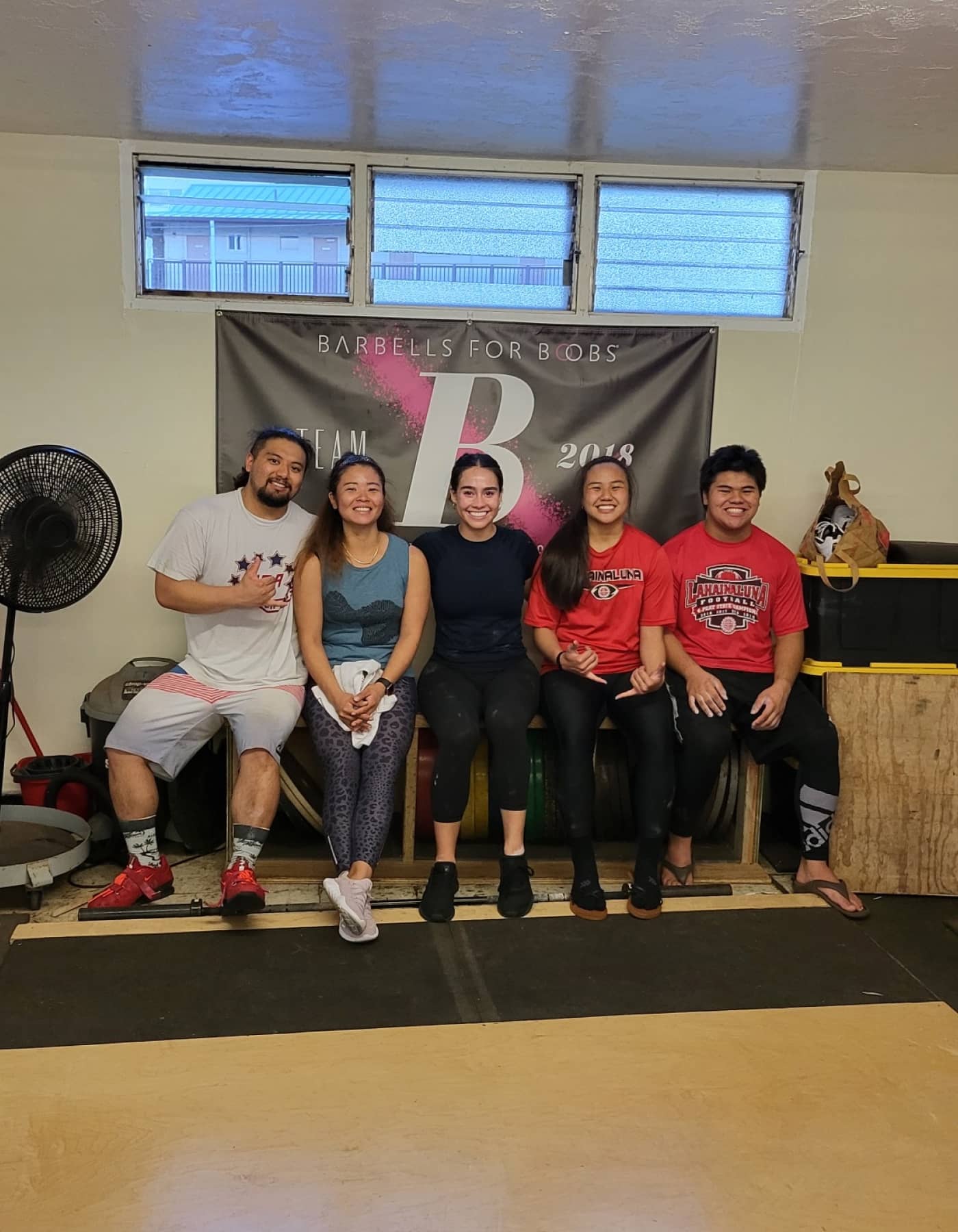
At the university I’m at now at California Baptist, I think that they do a very good job building relationships, even though you are online. So I feel very comfortable with my professors, although I have never sought mental help with them. I do feel very comfortable reaching out to them about anything, whether it be educational or mental. And I think that they keep in contact with you, even more so they make the effort because it is online.
And I think if you are an online student, which a lot of people are nowadays, that you should make an effort to reach out to a professor and build those relationships as well as other students in your class, because it is something that is very important. I also know that my university online now, they have mental health sources. So you can go to one-on-one meetings, you can do evaluations through the school. So they do have the resources and I would feel very comfortable if I was in that place of my life to reach out and tap into those resources. But I personally have not, because of the place I am in my life, but I would have no hesitation to access those resources at any point.
Message to Funders
I think one of the main issues or points that I would want to bring up is that how difficult it is to go to college as a Native Hawaiian. Because we are so isolated. And some of us are so naive, some of us don’t even know what is going on the continent, but we want to continue our education.
“I think the opportunities that we have here in Hawaiʻi are very few and far between, and you really have to search for opportunities to go get that postsecondary education.”
There are so many people in Hawaiʻi that want that for themselves and they just get so discouraged because there aren’t any resources to tap into for that. So I think what I would want to say to funders is that there are people that are actively searching and needing these funding and support, but there are few and far between. And yeah, I just think there are so many deserving people that, once again, get discouraged because they might not have the best GPA.
“…getting to college and applying to college as a Native Hawaiian, speaks so much more, has so much more power and value, because of the steps that it took that person to get to that position.”
And I think if funders would also open up their applications to allow students to voice that journey and the hardships that it took for them to even get to the point to apply to college, because that is such a huge thing. I think that’s what I would want to really highlight, is one, how difficult it is as a Native Hawaiian to even think to go get an education. Two, how difficult it is to apply because of the lack of resources.
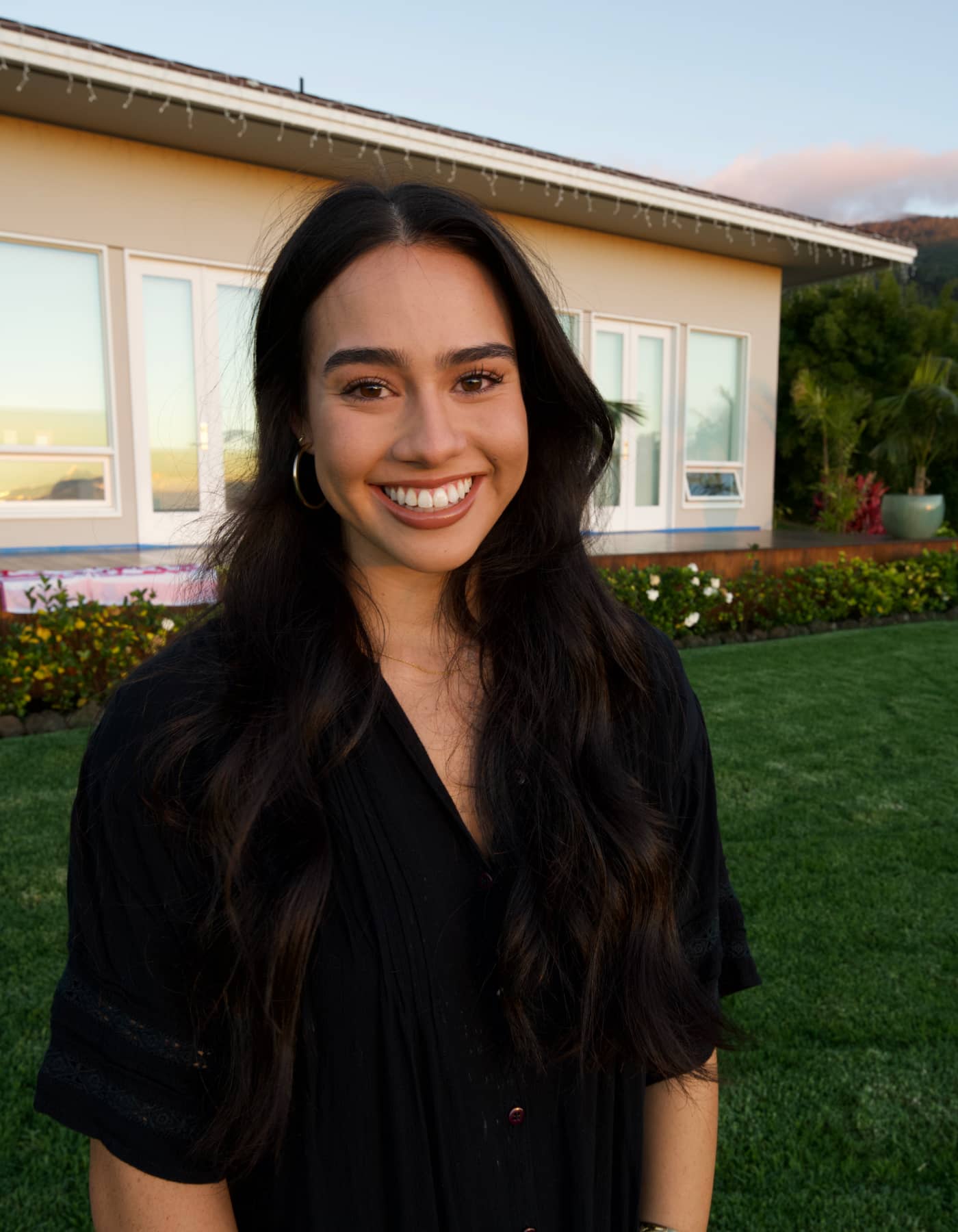
Some quotes have been edited for clarity with the speaker’s permission.
